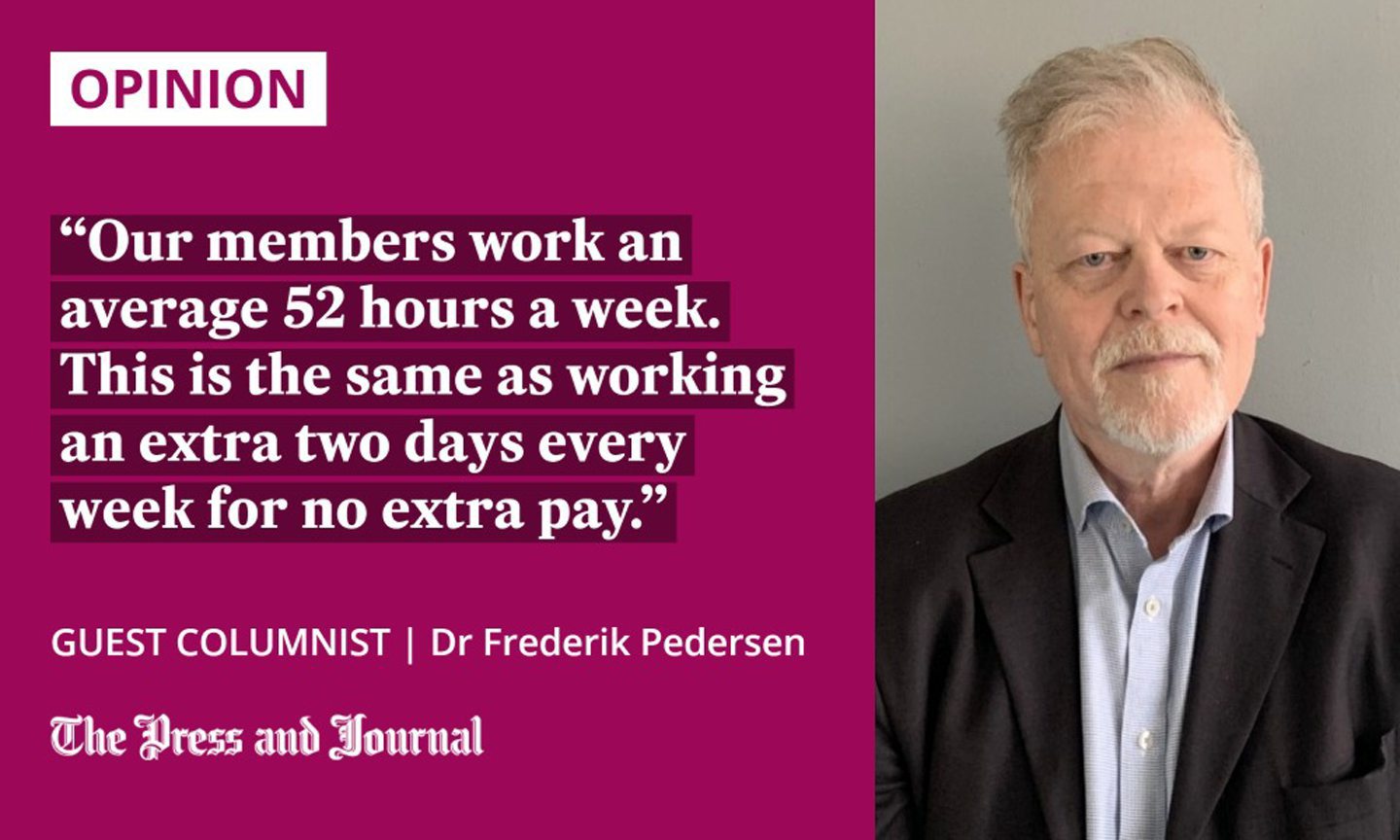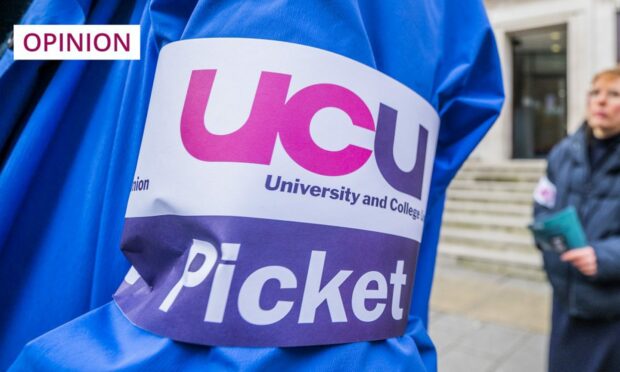As university staff across the UK prepare to strike, Aberdeen lecturer Dr Frederik Pedersen explains why employees feel forced into industrial action.
This week, members of the University and Colleges Union (UCU) will initiate industrial action against our employers, UK universities, following a vote.
More than 80% of those who voted instructed UCU to call a strike, and almost 90% promised to participate in action short of a strike.
Why have we done this?

We are taking action because of the deterioration in our salaries. Since 2009, UCU members (we are not only academics, but also university and college employees working in IT and administration) have seen a 25% drop in what we can buy with our earnings. Compared to 2009, this is the equivalent to us having to work more than one full day extra every week to pay for mortgages, rent, electricity, food, transport, and much more.
Our jobs are not secure. Universities and colleges across the UK employ our members on precarious contracts: up to two-thirds of research staff and almost half of university researchers are employed on fixed-term contracts.
The reality of casualisation in Higher Education:
🏚️ Insecure housing
🫰 Low pay
🧳 Disrupted communitiesTestimony from a @ucu member at @dundeeuni. 👇 Sound familiar?#ucuRISING #JoinAUnion pic.twitter.com/XgLLbBXGLv
— Mercedes Villalba (@LabourMercedes) November 22, 2022
Some universities fire and then re-hire staff on poorer contracts, and some use outside agencies to supply teaching staff. This insecurity means that many of our members do not know for certain that they will be able to afford rent, bills or other expenses from one year to the next.
We have not taken the decision to strike lightly
We are taking action to close the national gender pay gap. On average, across the UK, women members of the UCU are paid 15% less than their male colleagues. This is an unacceptable situation and one that our employers should be ashamed about.
We are aware that our action will mean that students will have to take increased responsibility for their own education
We are also taking action because we are concerned about our fellow workers’ mental and physical health. The demands of working in higher and further education have increased significantly in the last two or three decades.
Because of increasing demands relating to administration, pastoral support for students, and increasing student-staff ratios, our members work an average 52 hours a week. This is the same as working an extra two days every week for no extra pay.
Finally, there is the pensions issue. Our union has, time after time, argued that our pension plan is not in such dire financial straits as the evaluations suggest, and that we do not have a serious shortfall in our pension pot. Our pension plan is actually currently in surplus – a position that the forecasters told us two years ago would not happen until well after 2050.
Our employers have refused to join forces with us to demand that our pension provider pay back this surplus, created when our payments were increased, based on a flawed methodology.
We have not taken the decision to strike lightly. Universitas, the Latin root of the English word “university”, also means “community”. We are aware that our action will mean that students will have to take increased responsibility for their own education.
We have carefully considered how to achieve maximum impact with the view of winning and ending this dispute as quickly as possible. We hope you will support our action.
Dr Frederik Pedersen is a senior lecturer at the University of Aberdeen, and chair of UCU’s Aberdeen branch


Conversation